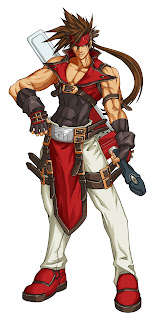Arguably the best way to break out of the kinds of limitations and contradictions present in player-driven character building in games is simply to provide more options. The more options are provided, the more complex the morality system. But this is clearly not feasible. Keeping track of vast numbers of variables and creating content for each possibility is extremely difficult and time consuming. Another possibility is to break away from binary morality and use another system.
The CRPGs based on the Dungeons and Dragons system have tried to implement the pen-and-paper game's non-binary two-axis alignment system (based on ethics -- chaos/law, and morality -- good/evil), but it has been restricted in some cases to prevent players choosing any of the evil alignments. It has also been historically difficult to maintain a neutral alignment in these games. Nevertheless, it is a well-established system that allows for a bit more nuance in moral (and ethical) alignment. More complex models like this one could be useful, but ultimately still include the reductive good/evil dichotomy that has so little relevance to the way that moral questions are often considered in other storytelling media not aimed at children or indoctrination.
The CRPGs based on the Dungeons and Dragons system have tried to implement the pen-and-paper game's non-binary two-axis alignment system (based on ethics -- chaos/law, and morality -- good/evil), but it has been restricted in some cases to prevent players choosing any of the evil alignments. It has also been historically difficult to maintain a neutral alignment in these games. Nevertheless, it is a well-established system that allows for a bit more nuance in moral (and ethical) alignment. More complex models like this one could be useful, but ultimately still include the reductive good/evil dichotomy that has so little relevance to the way that moral questions are often considered in other storytelling media not aimed at children or indoctrination.
Many of the moral 'problems' I've discussed in previous parts concern conflicts between game and story (the fashionable term being bandied about lately is ludonarrative dissonance). The truth is that most games with morality systems consider the morality and the core gameplay mechanics to be separate entities, or flavoursome sprinkles on the top of an established game mechanic. In the interest of more novel experiences, 'traditional', explicit morality systems seem to be falling out of favour. For example, this sort of system, used in BioShock, was later subverted in BioShock Infinite: your choices, while appearing to be significant, have no bearing on the plot or protagonist's nature whatsoever. The wish to tell a story with clear themes and messages and the wish to have a player control that story or its characters' natures appear to be in opposition. The way that storytelling has become an important part of gaming means that we either continue to suspend disbelief when confronted with system-narrative conflicts, or hope for new developments that will fit the two together more neatly, without the need for obvious imitation of other mediums.
Nevertheless, the way that morality is dealt with in games has either been similar to the approach of other media, which already allows for impactful characters and stories if done well, or based on player choice that blends this approach with involvement, which can be enlightening and revelatory for players if done well.
Part 1
Part 2
Part 3
Part 4











